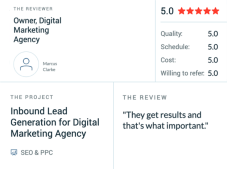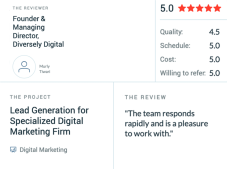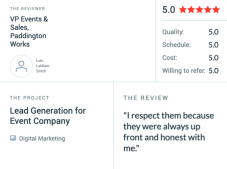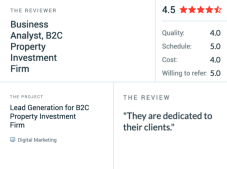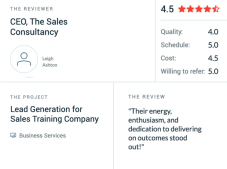Increase Revenue with Our Raleigh Lead Generation

Lead generation is a challenging process for most businesses. In particular, marketing and lead generation are all about building relationships with customers that often last a long time and make them like and trust the brand more.
To build these essential relationships, you need a good lead generation strategy that personalizes the customer journey and emphasizes educating, raising awareness, and nurturing leads.
Our lead generation agency will make you the best in the Smithsonian of the South. Our team will ensure that people in the Memorial Bell Tower or Chapel Hill know your brand and will likely be your customer.
Choose Pearl Lemon Leads USA. You can book a call today to learn more.
What You Should Consider Before Outsourcing To A Lead Generation Agency
Before you outsource your lead generation, you should think about the following:
Think About Your Product and How It Sells
Before outsourcing a model, think about your sales development style. Finding a good balance between account executives and sales development reps is demanding.
Even more so, if you’re a B2C or B2B business, any product that costs less than $1,000 is complex for many outsourcing services to work with, so it might be better to hire someone to sell your product to quicken the selling time.


When personas are more important than reaching a large pool of potential customers, it makes more sense to hire someone else to find leads.
If your sales cycle is short and you have a lot of possible leads, you should try to get the word out as much as possible.
Cold calling can work, but your money might be better spent on strategies that bring customers to you. Think about your products and customers before you decide to hire someone else.
Take Your Budget and Bottom Line Into Account
Most of the time, the size of your budget is the most crucial factor in whether or not you decide to outsource, and this is usually not a problem. Even though it’s essential to stick to the budget for your sales department, don’t let that be the only reason you decide whether or not to outsource.
Fees for outsourcing companies can look like a lot of money at first glance. It seems “extra” because it’s not part of the business.


When you price out services, you should consider how much it would cost to do them in-house and how much money you could make by outsourcing.
It would be best if you also thought about the training and costs that go into it.
Don’t just think you’re looking for the cheapest people to work with. Look at the big picture.
You’re trying to build a great sales team so that they can make more money and get to know your clients better.
As Featured In








The Fallacy of Being in Charge
Some people think they are in charge if they keep their sales department in-house.
This is a myth, and if you’re not outsourcing because you want to control or the illusion of control, you might want to rethink your point of view.
The truth is that you can’t keep an eye on everyone.
Even though you think you have control over your SDRs, you don’t. You can’t control what they say or type because sales is a separate operation.
Outsourcing lead generation can give your in-house sales agents more time to do their jobs.
So, things like that can help you get back in charge.
You decide where your in-house employee spends their time since you can give more challenging jobs to professionals.
Control does not imply listening in on every conversation. Instead, it means giving tasks to the people who are best at doing them.

The Benefits of Outsourcing Lead Generation
Getting help from outside is a good idea for several reasons. Agencies can bring something new to a small or medium-sized business (SME) or a large business that has been around for a while.

Focus on Making Sales
Sales reps spend a whole day every week composing emails, but 40% of reps believe prospecting is the most challenging part of their work.
This points to a simple truth: salespeople aren’t doing what they do best: selling.
When sales teams outsource lead generation, they can improve their sales pipeline and make more sales.
Increase Capacity Quickly
It takes a lot of time to build internal teams and develop and implement new channel strategies. You might not have the time.
Adding an outside lead generation team can be as easy as turning on a tap. You get a whole new stream of leads to the sales team in a short time.


Sales Growth Without Increasing Staff
On the other hand, you might not be able to add more internal marketing functions.
Startups and small to medium-sized businesses (SMEs) often find themselves in a Catch-22 situation: they need to make more sales so they can hire more people to work in marketing, so they can hire more people to work in sales so that they can make more sales.
When small businesses outsource lead generation, they can focus on the sales cycle and raise the money they need to keep growing.
Trying Out New Routes
Outsourcing lead generation is sometimes the same as outsourcing risk. It is common to test the viability of a channel before bringing it in-house.
Make sure you have the right skills so the change goes smoothly.
Spend Less
Even though this isn’t always the case, your cost per acquisition may be lower if your leads come from a company that specializes in lead generation and has gotten very good at it.


Experience The Pearl Lemon Difference
Outsourcing lead generation is a good idea because companies that use mature lead
generation practices tend to make 133% more money.
Even though sales can be very complex, the right lead gen company will do its best to help you make sales and get you the best deals possible.
You’re in good hands with Pearl Lemon Leads. Experience the difference that Pearl Lemon makes today. Give us a call.
Lead Generation System
Our team combines cutting-edge technology, techniques, and experts to improve your SEO and brand awareness within search results, display engaging marketing campaigns across all online platforms, and generate and nurture warm leads more effectively, making a significant difference in your brand’s visibility.
Want to experience it now? Book a call today to begin.
FAQs
In digital marketing, lead generation involves contacting potential customers through digital channels (e.g., your website, blog post, email, online ads, social media, etc.)
Digital lead generation is about giving potential customers valuable content to show interest in your product or service by giving you some or all of their contact information.
It’s important to remember that even after this kind of interaction, most of these contacts won’t be qualified yet. These leads, which are often called “Marketing Qualified Leads” (MQLs), will need more work to turn them into “actionable leads.”
This is something that organizations fight about all the time, and the correct answer is both. Lead generation is the part of a business where sales and marketing work together a lot, which can cause a lot of stress within an organization.
Marketing departments usually put in a lot of hard work to make a lot of content that potential clients can use. Then, digital tools are used to keep track of this consumption.
The prospects are “scored” and evaluated until they are finally called “Marketing Qualified Leads” (MQL).
The sales team is then given these “leads.”
But sales teams usually find it harder to get in touch with these new prospects. They either find that the leads aren’t good enough, or the people aren’t interested, so they stop trying.
High-performing companies ensure that MQLs undergo one more round of screening before giving them to salespeople. This helps ensure that their salespeople only spend time on leads that are likely to turn into sales.
Most B2B companies today sell goods and services that many potential customers can use. You are likely to fail if you try to reach every company in every industry and every part of the world with the same messages, approaches, and materials.
Organizations are too different and have different pain points, and ways of buying, so different groups will react differently to your sales and marketing efforts.
So, how do you ensure that your sales and marketing efforts are aimed at the best targets?
The answer is to segment the market and look at the data.
Market segmentation is the process of separating your sales and marketing results from a large set of different market data into groups that have more in common with each other. This can be based on the company’s size, type, or location.
The results are split into smaller groups based on persona, needs, behaviours, and attitudes. Then, performance data is looked at at the segment and subsegment levels to determine which segments are the most productive.
Market segmentation is vital to maximizing the results of any sales or marketing effort.

